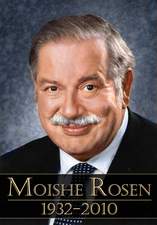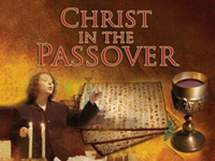Yet, as I prepared to shift my emphasis from Thanksgiving to Christmas, I kept reflecting on the many connections between the two holidays (the word holiday derives from “holy days”). Many secular sources recognize Christmas and Easter as Christian holidays, but very few do so with Thanksgiving. Indeed, many Christians are not aware of the true basis of the American celebration, which led to my decision to finish and upload the Biblical Roots of Thanksgiving article a few days late. Even though it was late, the message is timeless.
In the article, we noted that America’s modern Thanksgiving is derived from the Pilgrim celebrations in the early 1620s. In addition, we demonstrated that the Pilgrims based their celebrations in many respects on the Hebrew Biblical festival of Sukkot (Booths, or Tabernacles).
I used to think that it might be better if Thanksgiving and Christmas were not so close together on our calendar. In many aspects, the Christmas season begins weeks or even months before Thanksgiving, so we have a tendency to downplay the latter, even fast-forwarding through Thanksgiving to get to Black Friday (that now appears to start prior to Thanksgiving also). From a work standpoint, it would be nice to spread out our time off rather than rush through the hustle and bustle at the end of the year, then not have another holiday (unless one works for the government) until Memorial Day in late May.
Yet, from a spiritual point of view, it makes perfect sense that the two holidays occur only a few weeks apart. Both are days of thanksgiving and celebrations of pure joy. In general, we celebrate and give thanks for God’s physical protection and provision at Thanksgiving, and for God’s eternal spiritual protection and provision at Christmas.
At Christmas, we celebrate the Incarnation of the Christ (or Messiah). We get the word “incarnation” from the Latin (incarnatio) translations of “became flesh” in John 1:14, beginning about 300AD. The Incarnation is the act of grace whereby the Christ voluntarily assumed a human body and nature in union with His Diving Person, and became the God-Man. This was predicted about 700 years earlier by the Hebrew Prophet Isaiah (Is 7:14) as confirmed by the Apostle Matthew in his account of Jesus’ birth, All this took place to fulfill what the Lord had said through the prophet: “The virgin will be with child and will give birth to a son, and they will call him Immanuel” - which means, “God with us” (Mt 1:22-23).
Yet, the holiday of Thanksgiving also has its “God with us” connection via its linkage with Sukkot. In fact, we can even say that this is the prevalent underlying theme of the true past, present and future meaning of Sukkot.
Of course, God has always been “with us” in one sense or another. All three members of the Godhead were present and involved in the Creation (Gen 1:1-2, Jn 1:1-3). God walked with Adam and Eve in the Garden of Eden (Gen 3:8) and spoke multiple times with Abraham, Isaac and Jacob. He even wrestled with Jacob (Gen 32:22-32) before changing his name to Israel (struggles with God). A few centuries later, He appeared as a burning bush and called Moses to lead the Israelites out of Egyptian slavery (Ex 3).
After God brought His people out of Egypt, the Israelites spent 40 years wandering in the wilderness. The festival of Sukkot (Hebrew for “booths”) commemorates this time during which God protected and provided for them as they lived in temporary dwellings (Lev 23:33-43). In building the Sukkah (booth – singular form of Sukkot) as part of the Jewish celebration today, the covering should be sparse enough to see any clouds or stars in the sky. This is a reminder of God’s guidance in a pillar of cloud by day and a pillar of fire at night (Ex 13:21-22, 40:36-38) on their way to the Promised Land.
Moving forward about 1400 years from the wilderness wanderings, we arrive at the time of the aforementioned Incarnation of Jesus, where the meanings of Christmas and Thanksgiving / Sukkot intersect in the fullness of time (Gal 4:4-5). The eternal, incomprehensible God of the Universe took on a human nature and physically dwelt (or tabernacled) with us (Jn 1:14).
After Jesus’ ascension back to heaven, the Holy Spirit came to dwell in the believers at Pentecost (Ac 2:14) as Jesus had promised before His death and resurrection (Jn 14:15-18, 16:7). Christians continue to experience God’s divine presence through the indwelling Holy Spirit today (Rom 8:9-16, Eph 1:13-14).
Finally, we look forward to the New Heaven and the New Earth (Rev 21:1-4) when God will also dwell (or tabernacle) with us. Cognates of the same Greek verb “skēnoō” (to live, dwell or tabernacle) are used in both John 1:14 (indicative aorist active) and in Rev 21:3 (indicative future active). Just as Jesus physically dwelt with us, all believers will actually find ourselves before the Coram Deo (face or presence of God). The Apostle John wrote of this day, See what great love the Father has lavished on us, that we should be called children of God! And that is what we are! …Dear friends, now we are children of God, and what we will be has not yet been made known. But we know that when Christ appears, we shall be like him, for we shall see him as he is (1Jn 3:1-2).
So, let us carry the spirit of Thanksgiving with us through the Christmas season. During Christmas, we thank God for the greatest gift ever given, the life of His Son so that we can be adopted into His family and be co-heirs to a Kingdom. Yet, while we’re looking forward to the future with eager expectation, let us also continue to thank Him for His provision and protection in this life. Actually, the spirit of Christmas and Thanksgiving should not be limited to a day or a season, but should be an attitude, indeed even a lifestyle. In all circumstances, we can give thanks that, because of His great love for us, He is always with us… always has been… always will be.
 Moishe Rosen, the Founder and first Executive Director of
Moishe Rosen, the Founder and first Executive Director of  I had the privilege and blessing this weekend to meet Bruce Rapp over at Plano Bible Chapel this weekend. Mr Rapp, who heads up the Phoenix branch of
I had the privilege and blessing this weekend to meet Bruce Rapp over at Plano Bible Chapel this weekend. Mr Rapp, who heads up the Phoenix branch of 